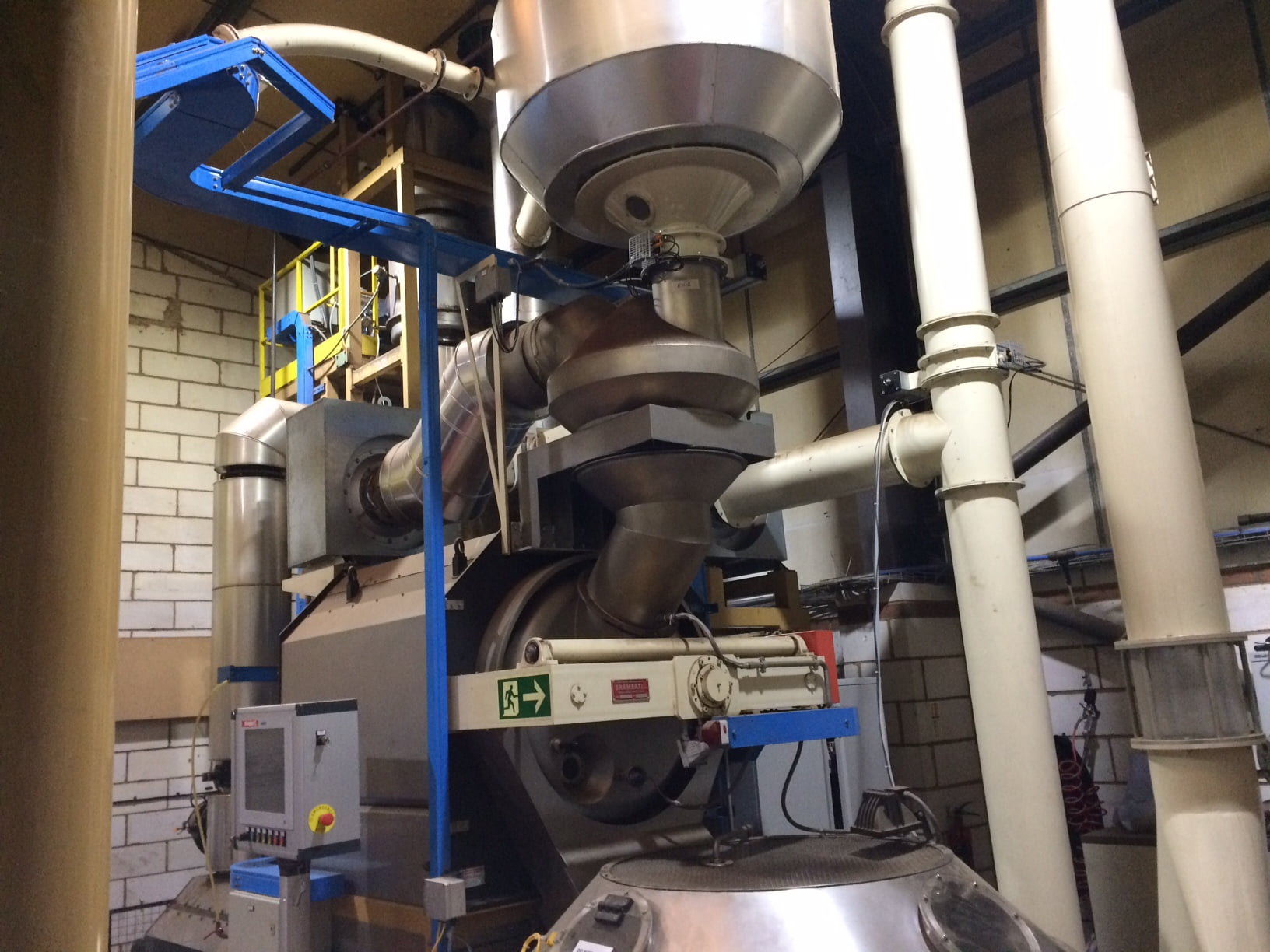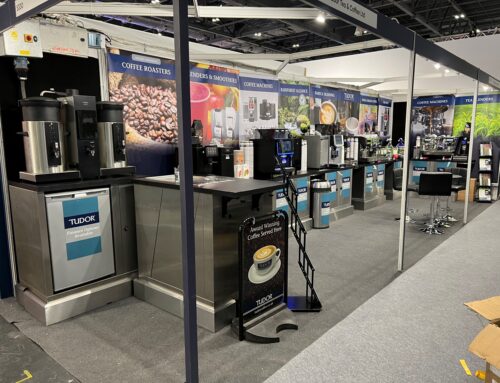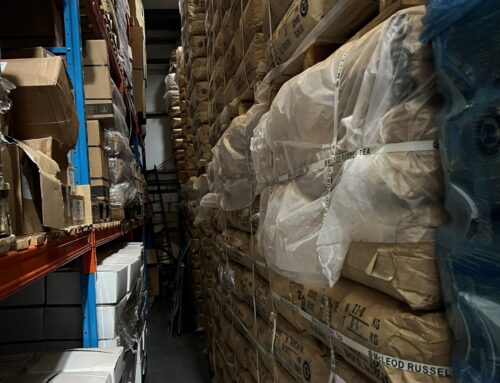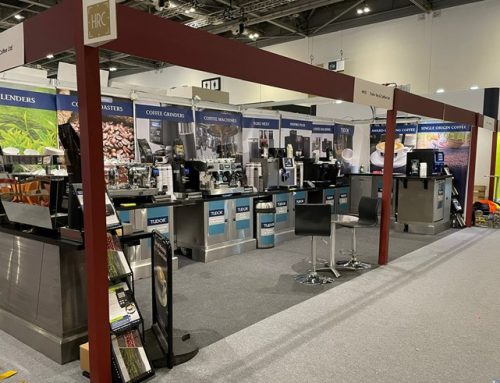 We are delighted to introduce 2 new Single Origin Coffees we have tasted today;
We are delighted to introduce 2 new Single Origin Coffees we have tasted today;
Indonesia Sumatra Mandheling G1
Indonesia is an archipelago of more than 17,000 islands and Sumatra is the second largest of them all. The islands were formed by volcanic activity and their mineral-rich soil, fortified with volcanic ash and diverse plant life, have helped to make Indonesia’s coffees among the most famous and celebrated around the world.
Arabica Coffee Catimor & Typica varieties
Giling basah (wet-hulled) and sun-dried
Aroma Slightly Earthy
Taste Profile Chocolate, Clean Earthy & Spice character
Body & Acidity Medium, rich body with medium acidity
Ethiopia Sidamo Natural G1 Organic
Sidamo, located in the Western Districts of Ethiopia is situated between 1,900 and 2,400 meters above Sea Level with the ideal climate and rainfall to grow Coffee. The cherries are harvested from many farms or smallholders and are prepared and distributed through numerous Co-Operatives with washing stations across their districts where they prepare their coffees for export. Many of the farms in Sidamo are Organic, UTZ, Rainforest Alliance and C.A.F.E. practices certified. Each year farmers gather to celebrate their harvests and to receive second payments for their coffee cherry contributions and rewards the best three farmers from each of the three villages with certificates and cash prizes in recognition of their consistent delivering of high-quality cherries. Natural process, dried in the shade on raised beds
Arabica Coffee Catimor & Typica varieties
Aroma Fruity & Floral
Taste Profile Raspberry, plum, tropical, spice character
Body & Acidity Creamy and complex with juicy acidity.
Two truly amazing Coffees to savour
New Outstanding Single Origin Coffees from the African continent roasted and tasted today
We are delighted to introduce 2 more new Single Origin Coffees we have tasted today;
Today we roasted and tasted AA Arabica Coffees from some high grown farms in East Africa, namely Tanzania and Kenya (SHGs), with both countries well renowned in the world’s coffee industry for consistently producing high-quality speciality-grade gourmet coffees.
In Tanzania, Coffee is farmed almost entirely by small holders working with co-operatives with this commodity now generating 5% of the country’s export revenue and is sold through national export auctions. It is grown at altitudes of between 1200 metres to 2,000 metres above sea level, historically almost all coffee grown in Tanzania was grown in the North, however coffee cultivation over recent years has since been extended southwards. Although the Tanzanian climate is good for harvesting coffee, there is such a wide array of climates and rainfall patterns, so that in essence each coffee growing region is therefore rather unique; resulting in certain cropping regions commanding much better green coffee prices than others that are less well invested locations, sadly these areas simply do not achieve their potential premium prices solely because they are hampered by the poor infrastructure that exists in their region.
Tanzania AA Coffee
Arabica Coffee Kent, Typica, Bourbon and some Kenyan varieties
Washed, sun dried on raised beds
Aroma Vibrant and somewhat fruity
Taste Profile Nuances of Caramel and vanilla and is creamy in character
Body & Acidity Lively rounded body with a rich complex acidity
Many aspects of Kenya Coffee growing industry mirror that of its Tanzanian neighbour, Coffee is farmed by many small holders working with co-operatives to market their Coffees as well as some larger corporate operations, indeed an amazing 6 million Kenyans derive their living from the Kenya Coffee industry which is sold through auctions in Nairobi during the harvest period. In terms of export importance, the Coffee Industry lies 4th behind Kenya’s Tea Industry in its foreign exchange earnings, commanding some 5.5% of its value in 2017. It is grown at altitudes of between 1,400 metres to 2,000 metres above sea level, benefiting from a moderate climate and generous equatorial sunlight and rainfall on the high plateaus of Mount Kenya southwards towards Nairobi as well as the foothills of the Aberdare range of mountains and furthermore at smaller growing locations near the Nandi Hills and Mount Elgon near the Ugandan border. The Kenyan climate is excellent for harvesting coffee, with some factories located next to rivers whereby they harness this water and then recycle it to both wash and to ferment the coffee cherries before having them being sun-dried upon raised beds.
Kenyan AA Coffee
Arabica Coffee SL34, SL28, Ruiru, Kent, Bourbon and Batian varieties.
Washed, sun dried on raised beds
Aroma Pungent, vibrant and floral
Taste Profile Lively fine bright cup with intense nuances of Caramel and vanilla and has a winey character
Body & Acidity Rich, Silky, well-rounded body with a superb complex and juicy acidity
Two more truly amazing African Coffees to savour
New Single Origin Coffees from the continent of Latin America roasted and tasted today, 3 different origins
Brazil is the worlds largest producer of Coffee and has always been the great Arabica supplier, Brazil is also the second largest producer of Robusta, now representing around 20% of its production. Whilst Brazil has always been perceived as a volume supplier, in recent decades, with the drive for quality revolution in today’s consumer savvy world, Brazil is today responsible for supplying around 4 million bags of high-quality coffee too.
With the upper echelons of quality in mind, we have tasted this certified Organic Arabica coffee from Saquarema Farm, this farm was established 200 years ago in Carmo do Cachoeira, in the south of Minas Gerais. Its original building is still operational and has been dedicated to coffee production for four generations which shows true dedication to creating superb Coffee.
This part of the region enjoys well-defined seasons, with rainy summers and dry winters, this farm benefits from abundant water sources, including 10 natural springs. Its has 128 hectares dedicated to Coffee and takes enormous pride in producing a quality crop that’s sweet, fruity and with outstanding acidity.
Brazilian Coffee
Arabica Coffee Mundo Novo, Yellow Catuai, Red Catuai, IBC and Icatu varieties.
Natural, by which the coffee cherry is passively dried to separate seed from the pulp.
Aroma Sweet and nutty
Taste Profile Nutty, Biscuity with intense nuances of Caramel
Body & Acidity Bright, creamy and superb acidity
Colombia is the worlds 2nd largest Coffee producer (especially washed coffees) and produces its crop all year round due to its privileged location of being situated under the Equatorial line which provides the perfect weather conditions for growing this commodity and has always been associated with producing high quality coffees. It exports approximately 12.5 million bags annually, offering Excelso beans (which are large – screen 15-16) and Supremo beans (which are even larger). Excelso beans constitute the majority of Colombia’s exports and it is this type we have been exploring in this blog. It is also possible for Supremo and Excelso coffee beans to be harvested from the same tree, as they’re sorted by size after processing.
Medellín, the “City of Eternal Spring,” is the second-largest city in Colombia —the birthplace of coffee in Colombia and remains its largest growing region. Coffees from Medellin are known for their medium body and cup profiles that are typically not as fruity or winey as those from other regions of Colombia. It produces a smooth, well-balanced cup that can be enjoyed any time of day.
Colombian Coffee
Coffee Bourbon, Typica varieties.
Washed and Sun Dried.
Aroma Cocoa and walnut
Taste Profile Nutty, Biscuity with nuances of Caramel
Body & Acidity Bright, creamy with a rich acidity and clean, sweet aftertaste.
Mexico, the largest country in Central America, is another of the worlds largest Coffee producers, it produces its crop in the southernmost regions of the country where the sunlight, ideal temperatures and precipitation combined with the high altitude, humid conditions and rich soils enable them to produce superb Quality Coffees which are characterised by large bean sizes with a round, balanced cup.
Many farmers bring their Coffee to market via Co-operatives, this is to ensure that producers receive a decent price for their produce, they in turn work closely with the exporters that support these communities with social improvements such as education on certification practices and financing and and they use the exporters transportation infrastructure to bring the producers’ coffees to world markets.
Producers in some of these areas embrace shade-grown methods, using native trees to shelter their coffee plants. They also value the region’s long established tradition of handpicking, which ensures that only ripe beans are picked. These skilfully committed communities endeavour to produce Coffee of organic standards; their Coffee is grown without chemical pesticides or fertilisers and use methods and materials that have a minimal detrimental impact on the surrounding environment offering Coffees that are rich in body (perfect for espresso) and have sweet, fruity profiles.
Mexican Coffee
Coffee Mundo Novo, Bourbon, Caturra, Typica, Catimor and Criollo varieties.
Aroma Sweet, Fruity and Vanilla
Taste Profile Smooth, nutty, biscuity and some hints of chocolate / caramel
Body & Acidity Bright, smooth, rounded and balanced acidity
Three more outstanding Coffees from Latin America to explore
Today we have Roasted and Tasted some more Amazing Coffees from Ethiopia, both with more intense flavours than the Sidamo that we explored earlier in our Blog.
Ethiopia Yirgacheffe and Limu Natural G1 Organics
Yirgacheffe is a small growing sector located in the Southern regions of Ethiopia, where the Coffee plants that grow naturally are enhanced by the thick vegetation, fertile rich soil conditions high in nutrients and it’s sweeping high elevations. The climate is warm and tropical, situated at between 1,400 and 2,000 meters above Sea Level with the ideal climate and rainfall to grow Coffee. The cherries are harvested from many farms or smallholders (supporting some 300,000 families) and are prepared and distributed through many Co-Operatives whereby farmers receive premiums based upon the quality of the final coffee that’s harvested, it demands that it’s farmers pick only fully ripe cherry. At the YCFCU control centre which has its own processing facility in Addis Ababa, the cherries are sorted to remove any that are not up to standard and are then pulped, fermented, washed and dried to 12 percent moisture.
Over the years this partnership has prospered with profits invested in building new Bridges, building water supply stations, ensuring that electricity is available within the region and have provided great improvements in their schools facilities and education.
Limu is a growing district in southern Ethiopia that produces some of the most rich and distinctive coffees available, using traditional varieties of Arabica coffees grown locally for centuries, they use a dry-processed (natural) method, meaning that the beans (seeds) are dried inside the fruit rather than after the fruit has been removed, as happens with Beans harvested on wet-processed or “washed” coffee process methods.
The resulting liquors are rich, well balanced and rounded flavours, tangy, almost spicy in character. Offering an intense combination of flavours with hints of caramel, citrus fruits and nutty tones. Indeed we feel that Limu Coffees offer even more of an intoxicating experience to the consumer than the better known Coffees harvested in their neighbouring growing regions of Sidamo and Yirgacheffe . The farms in Limu are Organic, UTZ, Rainforest Alliance and C.A.F.E. practices certified. Dried on raised beds
Arabica Coffee Heirloom varieties
Aroma Fruity & Floral
Taste Profile Sweet, fruity notes; tangy acidity, honey and spicy in character
Body & Acidity Silky, Creamy and complex profile with juicy acidity.
Two truly amazing Ethiopian Coffees to savour



